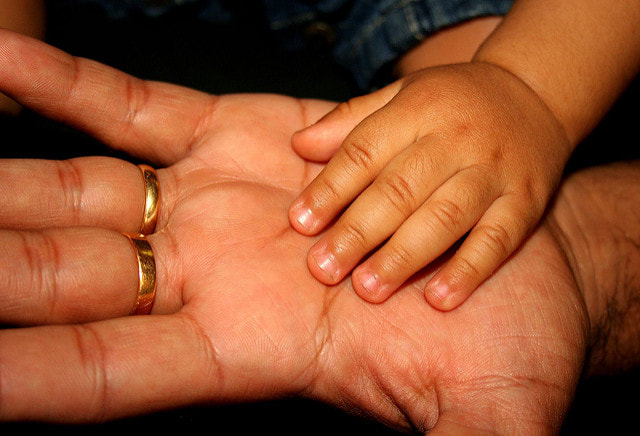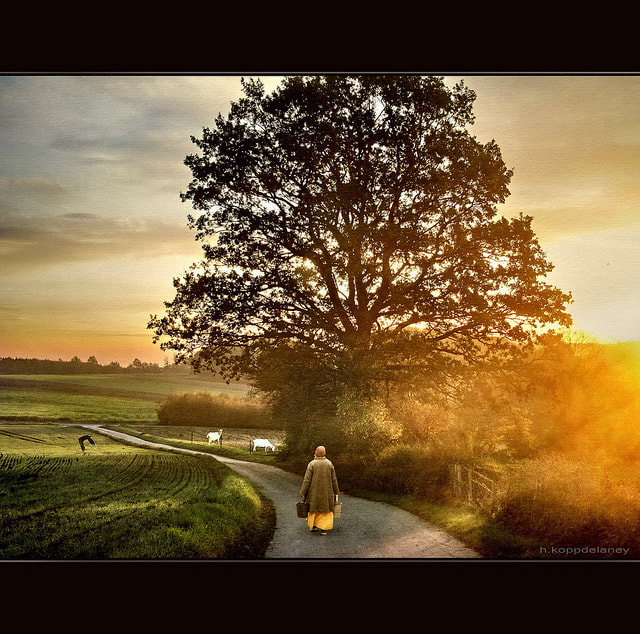What if every day of your life was a treasure hunt? What would you be searching for? Money? Connections? Pleasure? Relief? Love? Beauty? Those are just a few ideas, but we are all wired to think of “treasure” as something worth getting and that something is different for everyone. But it is a set up isn’t it? Because if we have defined success, or getting the treasure, as something, like feeling happy for example, then what happens when we have a day that is full of grief? I mean, life happens right? So does that day of grief get labeled as a “bad” day in our minds? Often, it does. And we are socially conditioned to do this, to label our day as a “good” day or a “bad” day. And let’s be honest, but isn’t a “good” day just a day that happens to go our way?
How about just experiencing whatever day we are having and letting go of the label of good or bad? What if, every single day, no matter what is happening, is a treasure hunt, and that treasure is simply, peace. In other words, how can we find the peace in every day? Being at peace with what is happening does not mean we are passive about things that upset us or need changing. It does mean being at peace with our own response to that particular day. If there is something upsetting in the news for you that day, then there is a choice. You can think its “bad” and therefore you will have a “bad” day, or you can accept what you are feeling (not so much thinking) and use it to get to know yourself more deeply, and build compassion for yourself. What are you feeling when you are upset by the news? Sadness? Disappointment? Anger? And then under the anger, is it fear? Powerlessness? Empathy builds when we acknowledge the feeling that is present without judging it as bad or wrong or trying to fix or solve it. First we allow the feeling to be present and recognize that it’s likely pretty normal to have such a response. Next we can ask ourselves the question, “what do I need today?” Here are some ideas to help you find your way.
It could be the guidance you received from your self investigation, leading you in a new and enlivening direction. Or it could be the simple awareness that something does need to change, even if you don’t know what that is just yet. The good news is you are listening now, and not leaving yourself behind in your efforts to attain some idea of success (more money, cleaner fancier house) or someone else’s expectations of you. You are living your life and letting that deepen into something more enriching than before because every part of you matters and exists for a reason. Even the tired and irritable part. We need only be willing to listen and hear the underlying message. Life becomes more complex and stressful when we don’t allow ourselves expression to be the full spectrum of who we are as human beings. We simply cannot afford the luxury of suppression any longer. This doesn’t mean we can explode with abandon. In fact, emotional explosions tend to be the result of long term suppression. It does mean we take stock on a daily basis, and work to surrender our agenda for our lives, or the day, and open up to the bigger picture of who we are and what life might have planned for us. It’s not easy. But it can be magical to set aside all the ways we attempt to control ourselves and our day to day. What happens then? Well, go ahead and see. And share with me about it, if you want, in the comments.
0 Comments
Tuning in and listening to the way we relate to ourselves is a way to honor this relationship.Responding to the messages of our mind, body, and emotions is a way to build trust and hope that we can meet our own needs and persevere through challenges with resilience. For the sake of this dialogue, let’s assume again that most of us have from time to time ignored the signals from ourself and continued with a behavior, or activity, or relationship that really wasn’t working for us.
Making the choice to become conscious and commit to our own wellness is making the choice to listen and do our best to respond appropriately to our own messages. As we do this more and more, we build the skill of listening and realize that the messages become subtler and subtler. The journey continues to evolve as we evolve. In other words, there is no static end or destination of finally getting it right. It is an ongoing practice of checking in with ourselves, taking the time to be in relationship with ourselves and being willing to hear our own feedback. Sometimes this is difficult, I get it. Even as I am committed to listening to myself and do hear the feedback from my body and my moods, I don’t always necessarily want to hear it. Its at these times, when the temptation to override caring with wanting is strong, that we really have an opportunity to strengthen that inner muscle, so to speak, of choosing to value ourselves. Its when the idea of getting our way seems more important than our health, that we are most at risk of undermining our own worth. And this is the habit worth interrupting because no matter how delicious or “fun” or whatever, the thing or action is, let’s be honest, it comes with a price when it is not truly aligned with what we really need. Another level of communication, or expression, is our feelings and emotions. How do you respond to your feelings when you are feeling them?
Do you notice your feelings at all? Can you name them? Do they make sense to you? Some feelings may be more comfortable to feel than others, such as happiness, or a feeling of love or being loved. I find it quite easy to feel content, for example. Other feelings, such as anger, sadness, or jealousy can often be harder to discern because we may believe that it isn’t ok to feel those things. This can lead to a more general sense of feeling “upset” and maybe not even knowing why. Paying attention to our feelings as they arise, by listening and honoring their message (their communication) to us can help guide us to getting to know ourselves better, from what we need, to what works for us, and what needs to be expressed. The body has another level of communication that is more recently being understood and respected as a message of health.The aches and pains of our body can give us great insight into our physical needs. For example, if you spend a day traveling by air or car and sitting for a long period of time in one place, the next day you might notice feeling some aches and tightness in the body from that lack of mobility the day before. A natural response to this “information” would be to move around, maybe go for a walk or do some light stretching to give the body what it needs to feel good. Discomfort in the body is more often a sign to pay attention to something that needs tweaking, rather than a sign we need to take some pain relievers and continue doing what we’ve been doing. The developmental psychologist, Erik Erikson, identified eight psychosocial stages for ego development.The first stage he titled Trust versus Mistrust. In this first stage, Erikson theorized we are under an essential crisis, which is the question, “is the world safe or not safe?” Depending on the consistent loving care of our parent or provider during infancy, we develop a sense of trust in the world to meet our needs or not. This sense of trust or mistrust, carries over into all relationships. Including, we can assume, one’s relationship with herself.If we complete this stage with a sense of trust, then we also complete this stage with hope, or confidence, that future crises or challenges will be managed successfully.If we complete this stage with mistrust, that is, if our needs were not lovingly met in a consistent way, than instead of hope lies anxiety, or fear, and a lack of confidence in addressing the inevitable obstacles of future reality. To read more about Erikson and his psychosocial stages click here.
Let’s take this premise and apply it to the essence of Conscious Wellness. Let’s also hypothesize that most people have a mixed experience of trust and mistrust, that it isn’t so black or white as Erikson describes it in his stages. Let’s assume that one could complete the stage with trust and mistrust, and that this stage may never actually be complete, but continues to evolve within us as we move through each relationship and experience that life has to offer. The one person that we will always be in relationship with our whole lives is our own self.What does it mean to be in relationship to our own self? How is that even possible? Well, let’s consider for a moment the different levels of communication that we can participate in. The first thing you may think of when I say communication is talking and then you might think that it is ridiculous the notion of talking to yourself. Unless you’re me, and I talk to myself all the time. Modern psychology identifies that the majority of our thinking on a daily basis is negative self talk. So maybe we are not talking to ourselves out loud, but there sure seems to be a lot of chatter in our minds and many of us are not even aware of the constant self talk that is going on and guiding the way we feel and how we make choices everyday. If you are interested in discovering what your self-talk might be I suggest sitting quietly, with no distractions, and writing in a journal. Without censoring yourself or worrying about correct spelling or grammar, just let yourself write the flow of thoughts onto the page and observe what comes up. Additionally, noticing what you are thinking about others can also be an indicator about how we talk to ourselves internally as well. We believe in the power of awareness, that is, becoming ever more aware of ourselves and our inner life. This means becoming conscious of our motivations, impulses, insecurities, needs, feelings, wants, passions and concerns.
The more we become aware of ourselves, the more we can develop a relationship of listening to ourselves with compassion and understanding. This willingness to hear our own needs and responses to life gives us a unique position to respond to ourselves with great care. Indeed, we have the opportunity in self-reflection to respond to ourselves the way we may have always wished others would respond to us. Building a caring relationship with our self is an empowering action and a foundational step towards conscious wellness. Within a loving and kind relationship, the true self naturally emerges.We no longer need to maintain defenses or coping mechanisms from the past to avoid looking at our self. In the presence of a loving other, we can begin to get to know the truth about what we need, and what our own wellness goals really are in this moment. Because we are dynamic, alive beings, these needs and goals are rarely static, but more evolving and deepening over time. Building skills to self-reflect with compassion and curiosity, rather than criticism, invites more of our self to emerge and sets a trusting precedent with ourselves that reinforces the self-reciprocity inherent in listening to our bodies, emotions, and thoughts with respect and then responding accordingly. This emergent autonomy strengthens over time an inner locus of control, which basically means that you become the expert on you.Being the expert on yourself does not mean dismissing other points of view, feedback, or medical information at all. It means incorporating your own voice into the discussion of your health. Too easily we have signed over that voice to a new fad diet, or our friends exercise routines, or other advice that in truth, may or may not be the right fit. Just because it works for another does not mean it will work for you. This is the value of self-reflection and building a wellness autonomy. Only you know your body- how your digestion feels, how your joints feel, what level of concentration is normal for you, how you are enjoying or not enjoying your life and able to see the beauty within it. These are all indicators of wellness and very unique to each individual. |
Archives
July 2018
Categories
All
|






 RSS Feed
RSS Feed